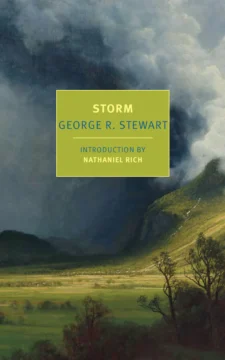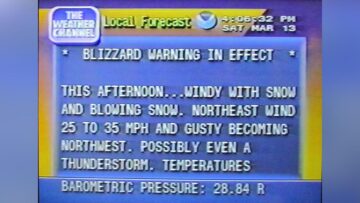by Mindy Clegg

“Well,” Lynch said, “imagine if you did find a book of riddles, and you could start unraveling them, but they were really complicated. Mysteries would become apparent and thrill you. We all find this book of riddles and it’s just what’s going on. And you can figure them out. The problem is, you figure them out inside yourself, and even if you told somebody, they wouldn’t believe you or understand it in the same way you do.” (from Variety by Chris Morris)
The director, musician, and artist David Lynch recently left us. I count myself as a fan. Twin Peaks, which aired when I was a young teen, was a revelation. Even today, few shows or films lay bare the utter weirdness and contradictions of American society in quite the same way. Lynch took the “normal” and showed its ugly face to the world. The mystery of Laura Palmer pulled everyone in, but it was the examination of small town life in America that appealed to many. His stories were full of contradictions, of how being normal can sometimes be a cover for bad intentions, while the social misfits are often the least morally compromised. As a kid who never got the knack of “fitting in” I found it easy to see these contradictions and so the elevation of the small town misfits resonated. Celebrities die all the time, and people who never met them often express sadness. We don’t know these people, but many of us feel like we do. But there are some who represent a strata of American society that often gets marginalized or stigmatized. Those deaths feel like real losses in a way that others do not. Lynch was one of those people, representing those who choose a life on the margins, despite being of the privileged class (white, middle class, etc). Lynch shared an important corrective to American exceptionalism: dark American weirdness.
Lynch offered up an important counter-narrative to the often celebratory version of Americana found in films and TV. Think of the way Steven Spielberg often invokes the imagery of small town America in his works. Lynch also loved the all-American small town, but he was drawn into the contradictions between the polite veneer and the often brutal reality. Rather than tales of typical Americans overcoming obstacles, he revealed how often aiming for that ideal and failing left people battered, bruised, even dead. In Twin Peaks Laura Palmer was a homecoming queen from a well-respected, influential, middle class family family in the pacific northwest. But her body washes up on the banks of a rushing river, wrapped in a plastic sheet. What begins as a tense “whodunit” proved to be an examination of the false veneer of small towns. The most aware and morally upright characters were not the city leaders, the “normal” men and women of Twin Peaks. Rather many of them were participating in the exploitation of teenage girls or at least ignoring that exploitation. Read more »



 With its pristine rainforest, complex ecosystems and rich wildlife, Ecuador has been home to one of the most biodiverse countries on Earth. For thousands of years indigenous peoples have also lived harmoniously in this rainforest on their ancestral land. All that has now changed. Since the 1960s, oil companies, gold miners, loggers and the enabling infrastructural workers have all played their part in the systematic deforestation and destruction of this complex eco-system. Human rights abuses, health issues, deleterious effects on the people’s cultures and the displacement of people have all become part of the indigenous people’s lives. But wherever and whenever oppression, exploitation and social injustice raises its ugly head, resistance will eventually emerge, and so it is with the indigenous Waorani people of the Ecuadorian rainforest, under the leadership of Nemonte Nenquimo.
With its pristine rainforest, complex ecosystems and rich wildlife, Ecuador has been home to one of the most biodiverse countries on Earth. For thousands of years indigenous peoples have also lived harmoniously in this rainforest on their ancestral land. All that has now changed. Since the 1960s, oil companies, gold miners, loggers and the enabling infrastructural workers have all played their part in the systematic deforestation and destruction of this complex eco-system. Human rights abuses, health issues, deleterious effects on the people’s cultures and the displacement of people have all become part of the indigenous people’s lives. But wherever and whenever oppression, exploitation and social injustice raises its ugly head, resistance will eventually emerge, and so it is with the indigenous Waorani people of the Ecuadorian rainforest, under the leadership of Nemonte Nenquimo.




 It doesn’t take a lot of effort to be a bootlicker. Find a boss or someone with the personality of a petty tyrant, sidle up to them, subjugate yourself, and find something flattering to say. Tell them they’re handsome or pretty, strong or smart, and make sweet noises when they trot out their ideas. Literature and history are riddled with bootlickers: Thomas Cromwell, the advisor to Henry VIII, Polonius in Hamlet, Mr. Collins in Pride and Predjudice, and of course Uriah Heep in David Copperfield.
It doesn’t take a lot of effort to be a bootlicker. Find a boss or someone with the personality of a petty tyrant, sidle up to them, subjugate yourself, and find something flattering to say. Tell them they’re handsome or pretty, strong or smart, and make sweet noises when they trot out their ideas. Literature and history are riddled with bootlickers: Thomas Cromwell, the advisor to Henry VIII, Polonius in Hamlet, Mr. Collins in Pride and Predjudice, and of course Uriah Heep in David Copperfield. There is something repulsive about lickspittles, especially when all the licking is being done for political purposes. It’s repulsive when we see it in others and it’s repulsive when we see it in ourselves It has to do with the lack of sincerity and the self-abasement required to really butter someone up. In the animal world, it’s rolling onto your back and exposing the vulnerable stomach and throat—saying I am not a threat.
There is something repulsive about lickspittles, especially when all the licking is being done for political purposes. It’s repulsive when we see it in others and it’s repulsive when we see it in ourselves It has to do with the lack of sincerity and the self-abasement required to really butter someone up. In the animal world, it’s rolling onto your back and exposing the vulnerable stomach and throat—saying I am not a threat.




 Risham Syed. The Heavy Weights, 2008.
Risham Syed. The Heavy Weights, 2008.
 Despite the fact that Newcomb’s paradox was discovered in 1960, I’ve been prompted to discuss it now for three reasons, the first being its inherent interest and counterintuitive conclusions. The two other factors are topical. One is a scheme put forth by Elon Musk in which he offered a small prize to people who publicly approved of the free speech and gun rights clauses in the Constitution. Doing so, he announced, would register them and make them eligible for a daily giveaway of a million dollars provided by him (an almost homeopathic fraction of his 400 billion dollar fortune). The other topic is the rapid rise in AI’s abilities, especially in AGI (Artificial General Intelligence). Soon enough it will be able, somewhat reliably, to predict our behaviors, at least in some contexts.
Despite the fact that Newcomb’s paradox was discovered in 1960, I’ve been prompted to discuss it now for three reasons, the first being its inherent interest and counterintuitive conclusions. The two other factors are topical. One is a scheme put forth by Elon Musk in which he offered a small prize to people who publicly approved of the free speech and gun rights clauses in the Constitution. Doing so, he announced, would register them and make them eligible for a daily giveaway of a million dollars provided by him (an almost homeopathic fraction of his 400 billion dollar fortune). The other topic is the rapid rise in AI’s abilities, especially in AGI (Artificial General Intelligence). Soon enough it will be able, somewhat reliably, to predict our behaviors, at least in some contexts.

